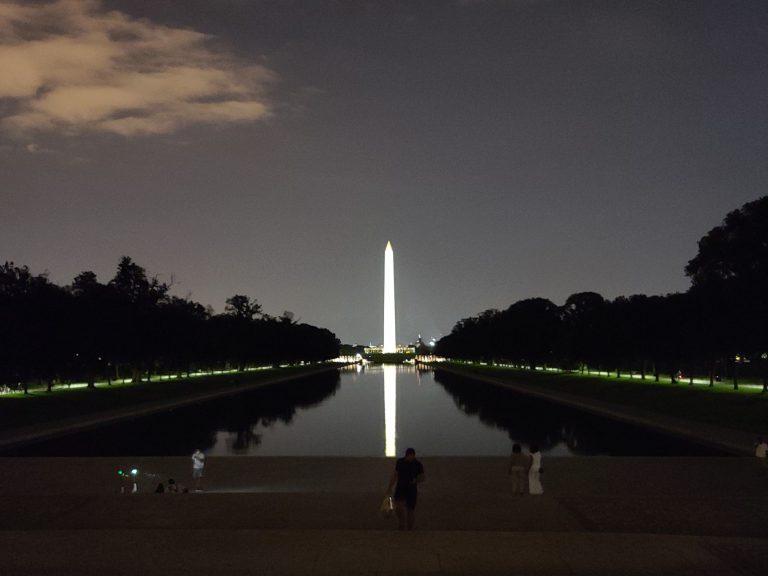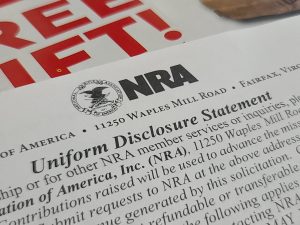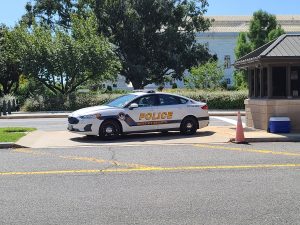Dick Heller forced Washington, D.C. to roll back another one of its gun laws, but this time was different than the others.
Instead of fighting Heller all the way up the federal courts, even to the Supreme Court, as they had done in the previous three cases he filed, the city gave him what he wanted before the first fight in court. That amounts to, effectively, a rare admittance by D.C. that they violated the Second Amendment.
D.C.’s law was indeed another example of an outlier. The original language effectively outlawed all gun-making inside the city–even by licensed manufacturers–and all polymer-framed guns–even the ones it issues to its own police force. But backing down just because one of its restrictive gun laws is an outlier is something D.C. has never done before–even when they outright banned the possession of all handguns.
And it’s clear it was something city leaders weren’t thrilled about.
“The proliferation of ghost guns in our city is certainly not what the founders anticipated or intended,” Councilmember Brooke Pinto (D-Ward 2), the lone holdout in the vote to change the law, told The Washington Post. “I’m hoping for more clarification on why we as a city have to continue allowing something that in my view is extremely outside the scope of what the founders intended.”
So, what was it that drove them to acquiesce in this case and give Heller what he wanted before even putting up a fight in court? The last time D.C. backed down on one of its gun laws provides some insight into the matter.
In June 2014, a federal court struck down the city’s complete ban on all gun carry. In July 2017, the restrictive “may issue” gun-carry permit law that D.C. replaced the total ban with was struck down as well. The city appealed that decision but lost again at the appellate level. Facing the prospect of another Supreme Court fight, the city gave up the legal battle. It declined to appeal the decision and passed a “shall issue” permit law in line with policies adopted by most of the country.
Attorney General Karl Racine explained the move was the result of a strategic shift. City leadership and fellow gun-control advocates reasoned D.C. would have to bite the bullet rather than risk losing at the Supreme Court.
“In consultation with Mayor Bowser, Chairman Mendelson, Judiciary Committee Chairman Charles Allen and multiple stakeholders, and after careful consideration, we reached consensus that abiding by the D.C. Circuit’s ruling was the wisest course of action to protect public safety in the District and nationwide,” Racine said in a statement at the time. “Therefore, I have decided not to appeal to the Supreme Court.”
Gun-control advocates were concerned that another Supreme Court loss by the city could have a significant impact on gun laws in other jurisdictions.
“Public safety is, and has always been, my paramount concern,” he said. “I continue to believe the District’s ‘good reason’ requirement is a common-sense, and constitutional, gun regulation. However, we must reckon with the fact that an adverse decision by the Supreme Court could have wide-ranging negative effects not just on District residents, but on the country as a whole.”
Many gun-control advocates have calculated that the federal courts are not going to be friendly towards the strictest gun laws out there, especially if they are relatively new outliers found in only a handful of jurisdictions. They reason the Supreme Court will not only look unfavorably on these kinds of laws but will be willing to take up more gun cases than they have over the past decade. Since the Court has granted two different gun cases over the last two years, they are probably right.
So, they appear to be pivoting towards a strategy of legal minimization: Keep any big gun cases away from the Court as long as you possibly can, even if it means taking a few losses here or there. This will likely take the form of more liberal-leaning lower courts granting limited wins to gun-rights advocates that end up blocking or prolonging their path to the higher court. It will also likely result in–as this D.C. case shows us–liberal jurisdictions making changes to their laws to avoid legal fights in the first place.
This effort can already be seen in places beyond Washington. New York has already employed this tactic at the highest level. While the state’s “may issue” gun carry permit law is currently being scrutinized by the Court, a law strictly regulating where owners could transport their guns was quickly tossed after the Court decided to grant cert in a case filed against it.
Gun-control groups were the driving force behind the gun law being loosened in that case. While the lobbying was done quietly, the motivations for it were made crystal clear in public.
“A ruling in NYSRPA vs. NYC could overturn not only the city’s gun transport reg, but also ‘may-issue’ laws governing concealed carry of firearms in public in New York and seven other states,” Ladd Everitt, director of the gun control group One Pulse for America, wrote in the New York Daily News. “Carry licenses are more difficult to obtain than premises licenses in NYC. Law enforcement officials have discretion to deny carry licenses to applicants with a history of violence. The NRA spent $1 million to get Kavanaugh confirmed to the Supreme Court because they believe he will provide the decisive fifth vote to eliminate such discretion by declaring a new, individual right to carry guns in public.”
That tactic worked. The Court declared the case moot after the changes were put into place even though New York had defended the law right up until the moment it was granted cert. So, expect to see more tactics like it moving forward.
Of course, gun-rights advocates understand this strategy too. They may have been caught a bit off guard in the gun transportation case, but they have their own tricks up their sleeve. Unlike in the New York gun transportation case, Heller asked for monetary damages, which means he may still have a live cause to pursue if he’s not satisfied with what D.C. has done to appease him.
“D.C. only passed an emergency measure; it still has to permanently repeal the offending provisions,” he told The Reload earlier this month, “and I still have a claim for monetary damages for the violation of my Second Amendment rights.”






